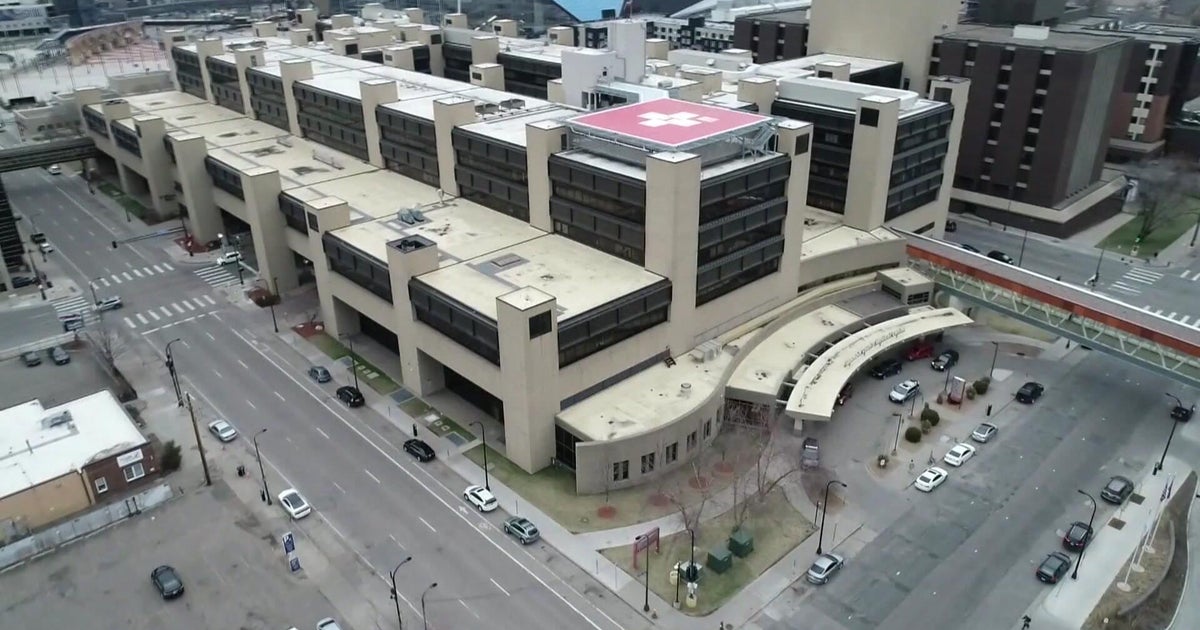Minn. House Approves Deep Cuts In Health Spending
ST. PAUL, Minn. (AP) -- The Minnesota House approved deep cuts to health and welfare programs in an early-morning vote Thursday, setting the stage for budget talks between GOP lawmakers and Democratic Gov. Mark Dayton.
The House's health budget bill, approved on a largely party-line vote of 70-62 after 2 a.m., was the last in a series of GOP-sponsored bills that together aim to fund state programs and agencies the next two years and eliminate a $5 billion shortfall between projected tax collections and spending obligations.
The health budget bill would cut projected spending on health care and social services by $1.7 billion over the next two years, while bringing sweeping changes to the state's public health care programs. Only three Republicans voted against the bill while one Democrat voted for it.
The bill crystallizes the gulf still separating the GOP and Dayton, with the Republicans insisting they've crafted a framework to erase the deficit without state tax increases as the governor insists on both cuts and a new revenue source.
Republican leaders in the state Senate said Thursday morning they hope to begin direct budget talks with Dayton soon, but offered little hint of where compromise might be found. "We'd like to ask the governor to please come to the table," said Sen. Majority Leader Amy Koch, R-Buffalo.
The first-term governor wants to raise taxes for the state's top earners. His top advisers have raised multiple objections to the GOP slate of spending plans, issuing a stream of letters highlighting areas of disagreement.
The health bill would unravel a Medicaid expansion Dayton ordered this year for 100,000 vulnerable adults, eliminate MinnesotaCare health coverage for 7,200 adults and give other MinnesotaCare enrollees subsidies to buy private insurance. It counts on saving $300 million by getting federal permission to tinker with Medicaid, known in the state as Medical Assistance. Services for disabled people would also be cut significantly from projected spending levels.
Rep. Jim Abeler, the bill's sponsor, said an overhaul is needed to curb the fastest-growing area of state spending and preserve a safety net for the most vulnerable.
"If you care about the people we're serving, then you better find a way to keep affording to serve them," said Abeler, R-Anoka, on the sidelines of the debate late Wednesday.
Democrats argued that the bill banks savings that might never materialize.
Human Services Commissioner Lucinda Jesson said $750 million of the cuts are unsubstantiated by state fiscal analysts and the rollback of the Medicaid expansion would result in the loss of $1.3 billion in federal money over three years. Health Commissioner Ed Ehlinger predicted the bill would undo big pieces of a health care overhaul the state adopted in 2008, including stripping funding for prevention programs and efforts to save money by better coordinating patient care.
"Basically half of their cuts are not real," said Rep. Tom Huntley, the ranking Democrat on the House Health and Human Services Finance Committee.
Lawmakers amended the bill Wednesday to block penalties for those who refuse to buy health insurance as required by the federal health care overhaul, after a philosophical exchange over the federal law and states' rights. The GOP majority defeated a Democratic attempt to require the governor to consider calling a special session if savings from the federal Medicaid waiver weren't realized, so lawmakers could address the resulting budget gap.
The health budget bill and spending plans for public schools, colleges, courts, prisons, job and farm programs and more are headed to legislative negotiating panels charged with reconciling differences between the chambers' approaches. Some details of the House bill differ from a Senate version approved last week, but both seek to undo the Medicaid expansion and obtain a federal waiver to give the state more control over health care spending.
Earlier Wednesday, the House voted 72-61 along party lines for a bill that would slash state agency budgets by a third while reducing the state work force 15 percent by 2015. Republicans said the bill would slim state bureaucracy while Democrats bashed it for cutting state workers.
Lawmakers and Dayton have until May 23 to agree on a budget during the regular legislative session. The current budget cycle terminates at the end of June.
(© Copyright 2011 The Associated Press. All Rights Reserved. This material may not be published, broadcast, rewritten or redistributed.)







